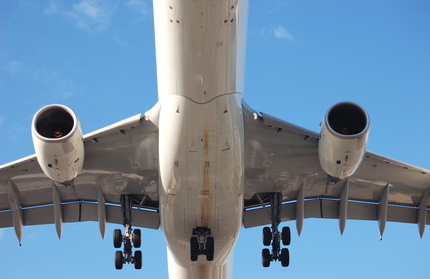How high taxes and fees punish air travellers

Airport fees, excise taxes, passenger-security charges – there is a panoply of fees that pump up the prices of airline tickets. These additional fees are expensive for travellers in addition to undermining the growth of the air transport sector.
Indeed, the total revenue collected by all levels of government in the form of taxes, fees, and rent – from consumers, from airlines or from airports – exceeds $1.5-billion a year.
A substantial portion of these fees does not even respect the “user pays” principle. They are nothing more than a source of revenue for the government.
With summer vacations beginning, what can government do to give travellers a helping hand to reduce these fees and taxes?
The federal government is responsible for the main Canadian airports as well as the passenger-safety program. Along with the provinces, it also imposes fuel taxes and goods and services taxes.
The effect of all of these taxes and fees places Canadian airports at a disadvantage. Usage fees paid to Canadian airports by airline companies average 50 per cent more than the average of the 10 most expensive American airports, and are nine times higher than the average of the 10 least expensive.
When the value of the dollar approaches that of the American dollar, high taxes and fees can encourage Canadians to cross the border to take flights from the United States. And that’s just what happened a few years ago, when it was calculated that Canadian airports were losing five-million passengers annually, mainly due to the price disparity – one-third of which was itself the result of higher fees and taxes. Such a situation is bad for Canadian governments and travellers alike.
In 2017, a World Economic Forum report ranked Canada 68th out of 136 countries in terms of ticket taxes and airport fees. According to another index, produced by the International Air Transport Association, Canada is ranked 31st out of 32 OECD countries in terms of the competitiveness of airport fees and taxes. But there’s another reason to reduce the taxes and fees weighing the sector down. Governments could reduce the taxes, fees and rent they collect from airports without necessarily entailing a substantial loss of revenues. This is because the demand for flights is sensitive to price variations, especially for those travelling for the purpose of tourism. For short distances, higher prices inflated by taxes and fees that are applied only to air travel can lead users to choose another mode of transport that is less overtaxed. For longer trips, high prices can lead people to decide not to travel at all.
Specifically, a 1-per-cent decrease in the price of tickets entails an increase in demand of 1.3 per cent to 2 per cent depending on the type of route. Thus, if we reduced the burden of taxes and fees that weighs down the air transport sector, the resulting increase in economic activity and tax revenue would likely compensate for at least a portion of the lost government revenue. Indeed, one study concluded that in Britain, the abolition of fees on passenger transport would entail an increase in revenue from this sector.
Taken individually, none of these taxes and fees explains the high price of tickets in Canada, but their cumulative effect is clear. At the margin, they limit the growth of the air transport sector and the ensuing economic benefits. The tax burden that weighs on the air transport industry also weighs on the Canadian economy as a whole.
If they want to make the Canadian air transport industry more competitive and allow it to maintain its momentum, governments should reduce this burden, in parallel with the policy of opening up the sector to foreign investment. Governments can’t bring Montreal and Vancouver closer, but they can certainly avoid making the trip more expensive than it needs to be.
Alexandre Moreau est analyste en politiques publiques à l’Institut économique de Montréal et l’auteur de « Transport aérien : les taxes et frais élevés pénalisent les voyageurs ». Il signe ce texte à titre personnel.

